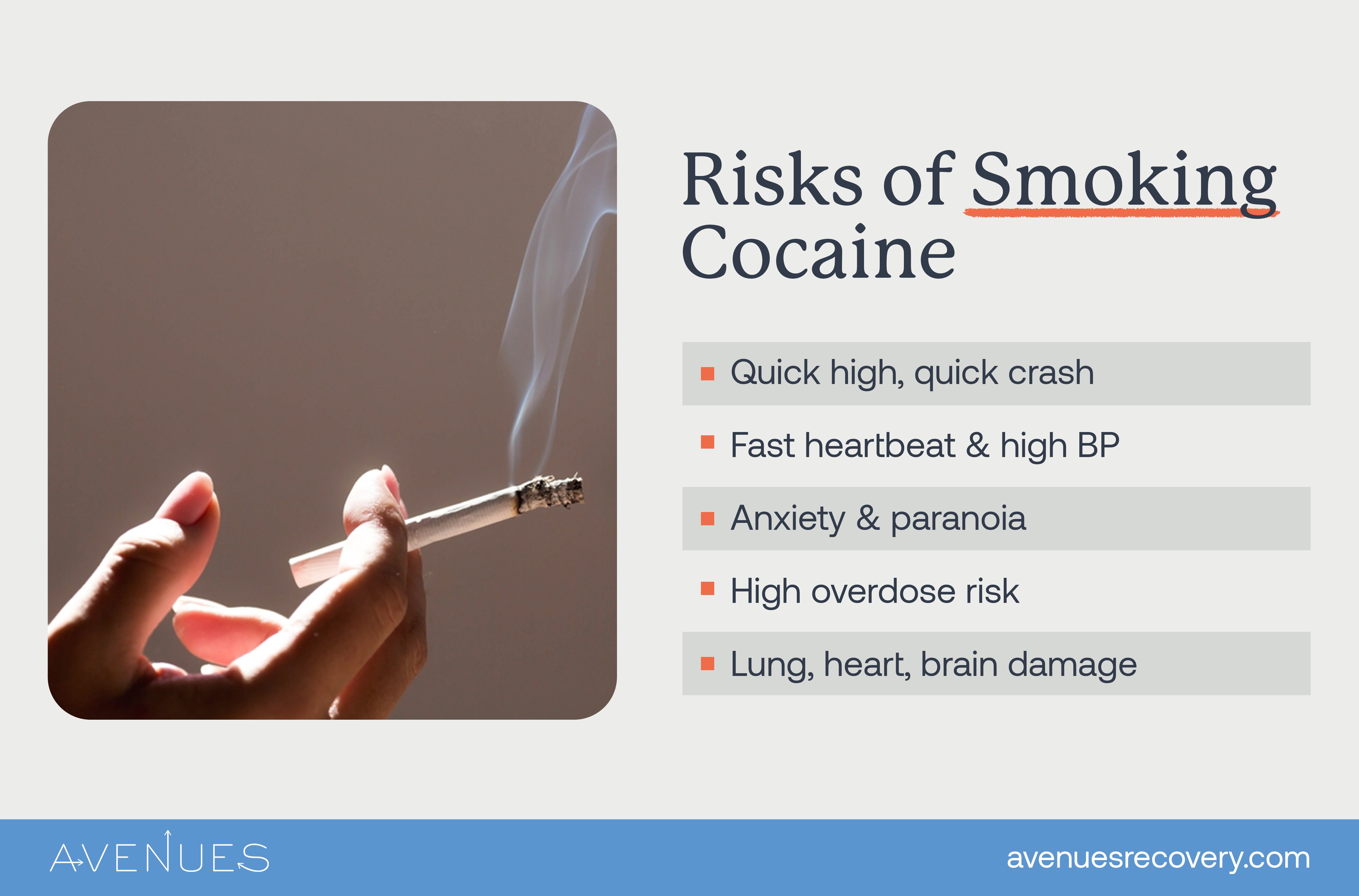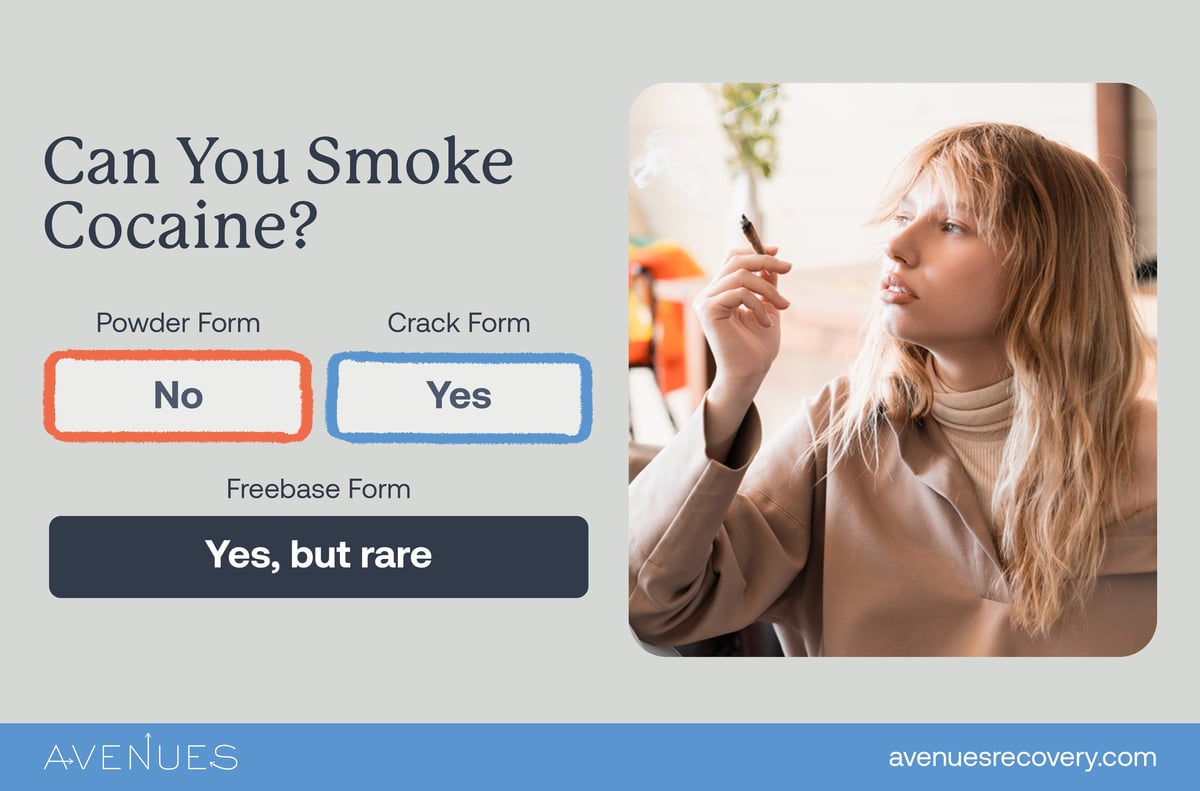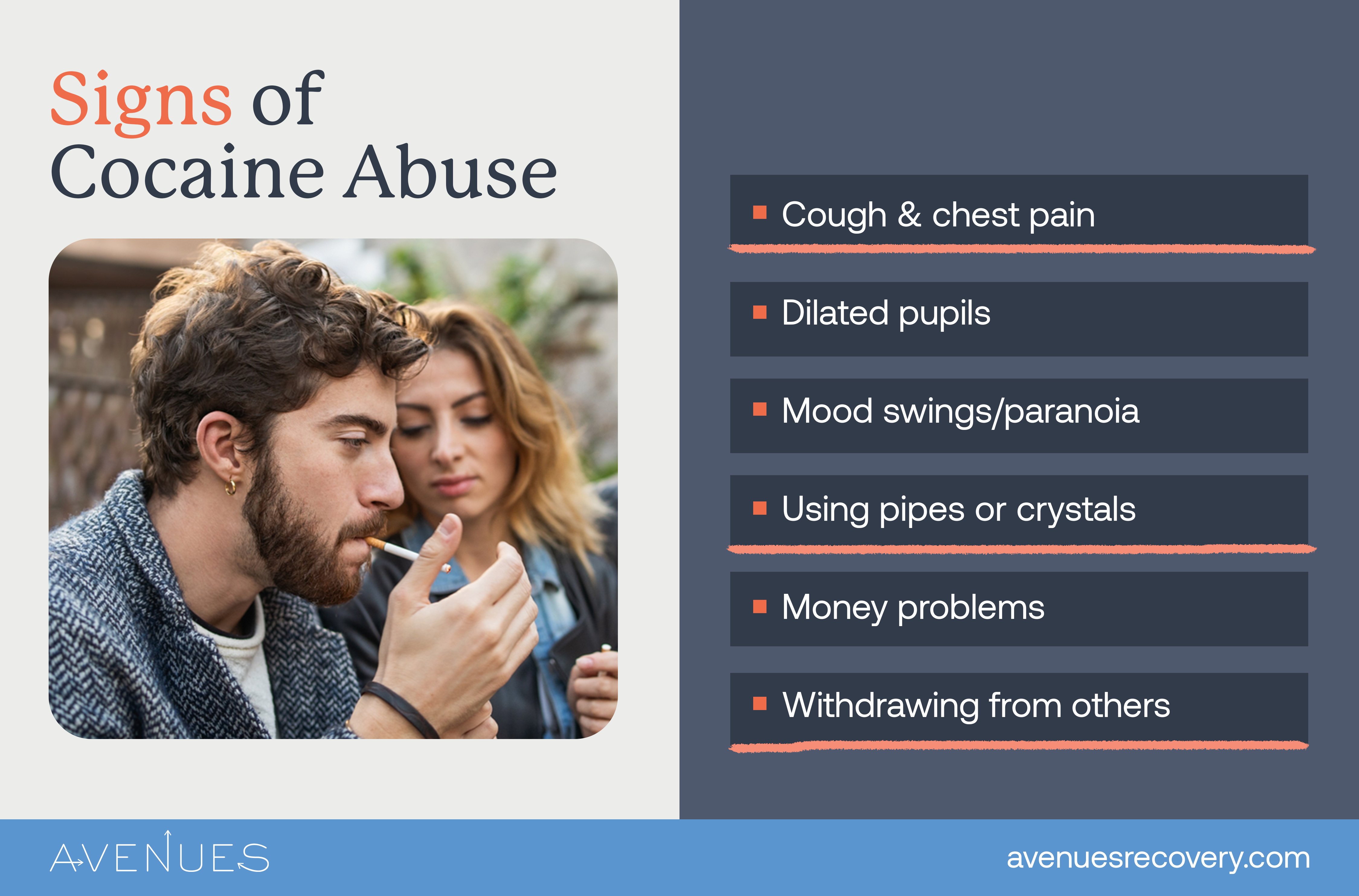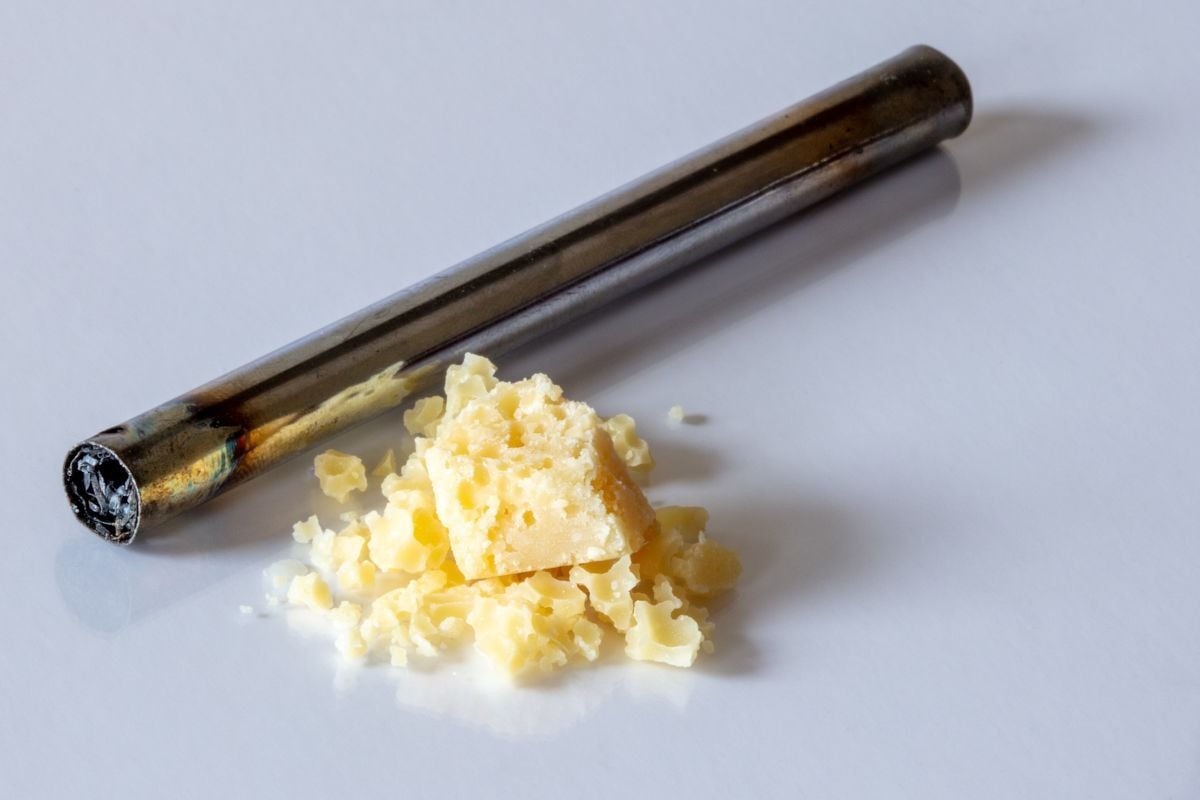Yes, cocaine can be smoked—but not in its typical powdered form. Powdered cocaine burns at too high of a temperature to be effectively smoked. Instead, people often convert it into crack cocaine, a rock-like substance made by cooking powder with baking soda and water. Crack vaporizes at a lower temperature, making it possible to inhale.
Smoking cocaine in this form delivers the drug to the brain almost instantly, creating a very intense—yet short-lived—high. This rapid effect also makes it extremely addictive and dangerous, often leading to repeated use in quick succession and a much higher risk of overdose.
.jpeg?width=5184&height=3456&name=AdobeStock_527022895%20(1).jpeg)
What Happens When You Smoke Cocaine?
When cocaine is smoked, it enters the bloodstream through the lungs and reaches the brain within seconds. This creates an almost immediate rush of euphoria, energy, and heightened alertness, along with physical effects like:
- Rapid heartbeat
- Dilated pupils
- Bursts of energy and confidence
But the high only lasts about 5–10 minutes, followed by a sharp crash that often includes anxiety, irritability, and exhaustion. Because the effects wear off so quickly, people tend to smoke repeatedly in short periods, driving fast-developing addiction and putting immense stress on the heart, lungs, and brain.

Smoking Cocaine: Powder, Freebase, and Crack
Cocaine comes in several forms:
- Powder cocaine: Usually snorted or injected. It burns at too high of a temperature to smoke effectively.
- Freebase cocaine: Chemically altered to vaporize at lower temperatures, making it smokable but rare due to dangerous production methods.
- Crack cocaine: Made by cooking powder with baking soda and water until it hardens into “rocks.” Crack became popular in the 1980s because it was cheaper than powder and delivers a fast, powerful rush.

Immediate and Long-Term Risks of Smoking Cocaine
Smoking cocaine puts the body under immediate stress:
- Racing heartbeat
- High blood pressure
- Chest pain
- Anxiety and paranoia
Because the drug reaches the brain so quickly, overdose risk is extremely high—even after one hit. Complications can include seizures, stroke, or sudden heart failure.
Long-term risks include:
- Severe lung damage and chronic cough
- Higher risk of heart attacks and strokes
- Weakened immune system
- Lasting cognitive issues like memory loss and mood disorders
Signs of Cocaine Abuse from Smoking
When someone smokes cocaine regularly, changes often appear quickly. Signs may include:
- Persistent cough, chest pain, or shortness of breath
- Dilated pupils and frequent nosebleeds
- Extreme mood swings, paranoia, or anxiety
- Burnt spoons, glass pipes, or small rock-like crystals nearby
- Financial problems, secrecy, or withdrawal from family and friends
Because smoking delivers such a fast and powerful high, these warning signs can escalate rapidly.

Can Smoking Cocaine Lead to Addiction?
Absolutely. Smoking cocaine is one of the fastest routes to addiction because the brain receives the drug almost instantly. The intense high and rapid crash create a powerful cycle of craving, tolerance, and dependence that is difficult to break without professional treatment.
Getting Help for Cocaine Addiction
Breaking free from cocaine addiction may feel overwhelming, but recovery is possible with the right care. At Avenues Recovery Center, we provide:
- Medical detox to manage cravings safely
- Individual and group therapy to uncover root causes
- Relapse prevention strategies for long-term stability
- Compassionate support every step of the way
If you or someone you love is struggling with cocaine use, don’t wait until the damage worsens. Reach out to Avenues Recovery Center today—our doors are always open, and our experienced team is here to help you reclaim your life.
Recovery is possible. Recovery is real. Call us today.


